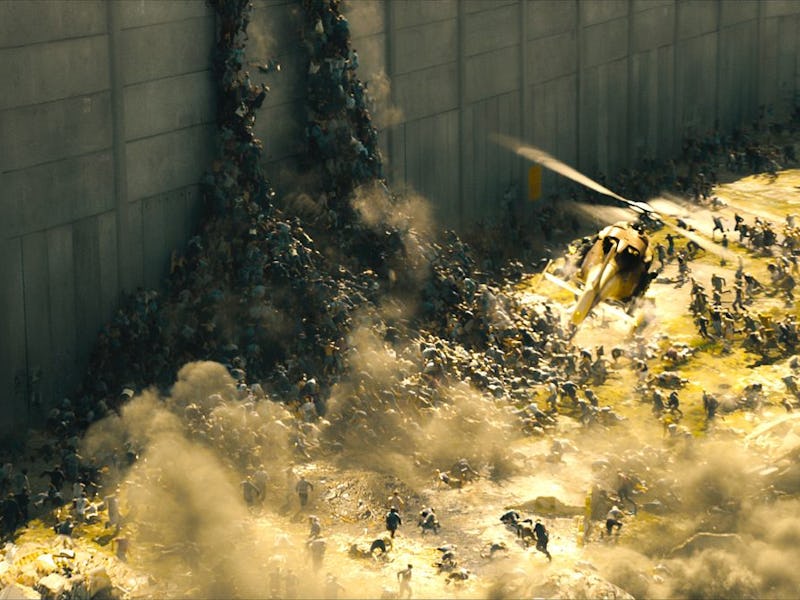Fans Hated the Changes to World War Z, But the Movie Had to Make Them
Adapt or die.

World War Z is a better movie if you've already read the book. Wait, hear us out. It's not better because it's a faithful adaptation of Max Brooks' 2006 novel. All the changes it made are why it succeeded.
On June 21, 2013, Marc Forster's World War Z opened to half-hearted shrugs from critics, but also about half a billion dollars at the box office. If the movie hadn't been so expensive to make, particularly because of its troubled production history and extensive reshoots, then a sequel would've been all but inevitable. Fans of the novel by Max Brooks came out for it, and because it was a summer zombie movie starring Brad Pitt, it naturally attracted an audience. At the time, just about anything starring Pitt or zombies had a good chance to fill seats.
Fans of the book were disappointed. The magic of Brooks' novel was in its satirical approach to how the modern world would react to a deadly, existential threat to humanity. He called it World War Z because he lifted the structure of his novel, which offered many viewpoints, from a Pulitzer-winning oral history of World War II.
The book chronicles how different governments — and citizens within those governments — would react to a zombie apocalypse. They'd try to cover it up. Lie to their own people. Throw bodies at the problem, you name it. The movie adaptation has the same spirit as this commentary, but it’s a straightforward blockbuster about one man traveling the world to find the source of the outbreak, and hopefully save his family along the way.
Fans didn't want another movie like 2005’s War of the Worlds. They wanted the experimental, journalistic approach. They wanted interviews and stories painting a world in crisis from different perspectives, from a Japanese loner who escapes to the forest to a Hollywood director tasked with creating military propaganda. It worked for the book, so why not the movie?
Among other odd choices World War Z made, this was Brad Pitt’s hair.
But oral histories don’t really translate to sheer cinematic spectacle. World War Z faced so many production changes and reshoots because it was initially too political and convoluted, in an attempt to align with the storytelling methods of its source material. But the final product, while far from peak blockbuster entertainment, managed to apply the book's principles to a brisk, entertaining action movie making the same core argument: that the world is wholly unprepared to reckon with not just unforeseen disasters, but also one another.
It’s remarkable to rewatch the film again after witnessing the last few years. Sure, we didn’t have to deal with zombies capable of scaling massive walls, but we did see feverish divisions between nations and people. We saw some people scaling walls to try and take over the government. We saw medical professionals overwork themselves to the point where some died to save whoever they could. And then we saw the backlash and propagandistic recontextualization of those heroes as villains.
Watching World War Z today is a look back at a prediction of how zombies would realistically be handled by the people we put into power. In retrospect, the movie was quite naive, despite having plenty of bite. It can be enjoyed as the weightless summer escapism it was designed to be, but it can also be appreciated as an ironic time capsule. An overestimation of society, even by Brooks’ harsh standards. We didn’t even need a sequel. Real-life worked well enough.